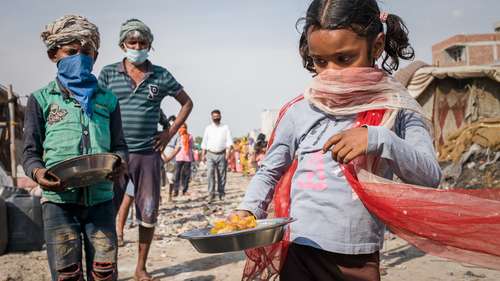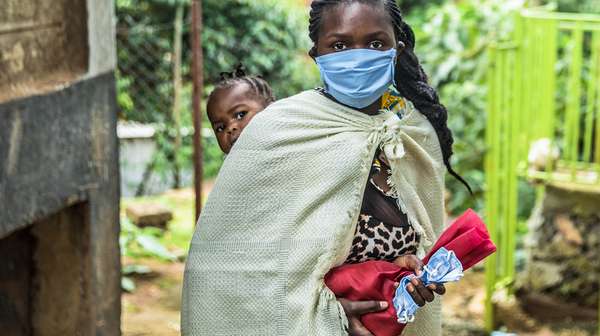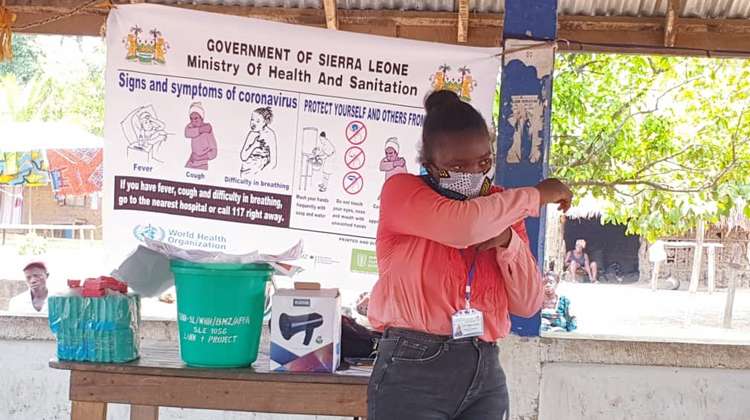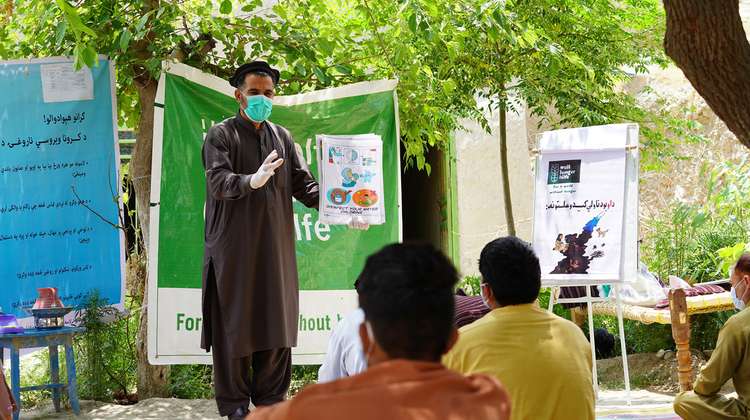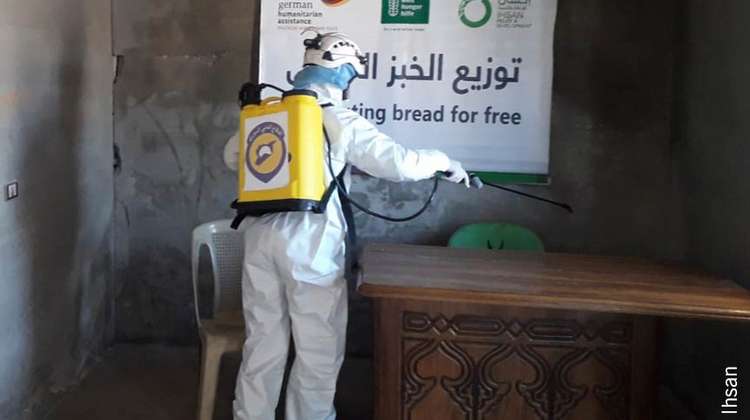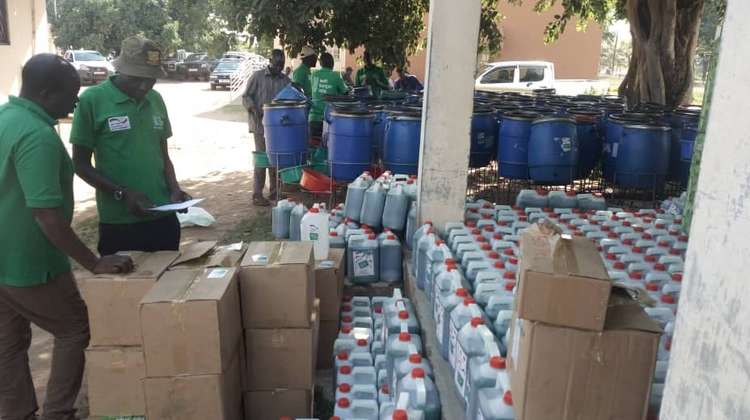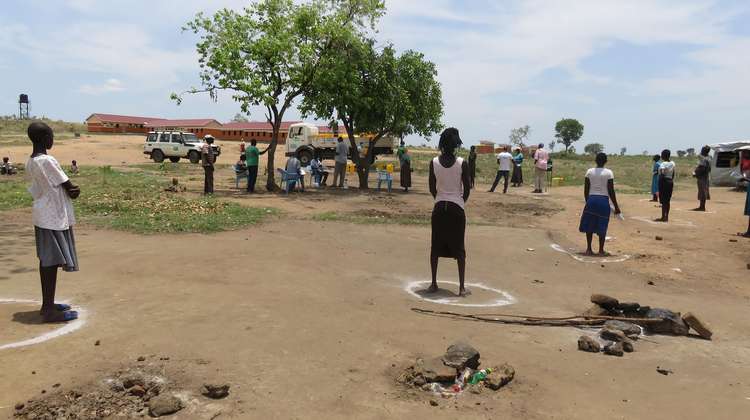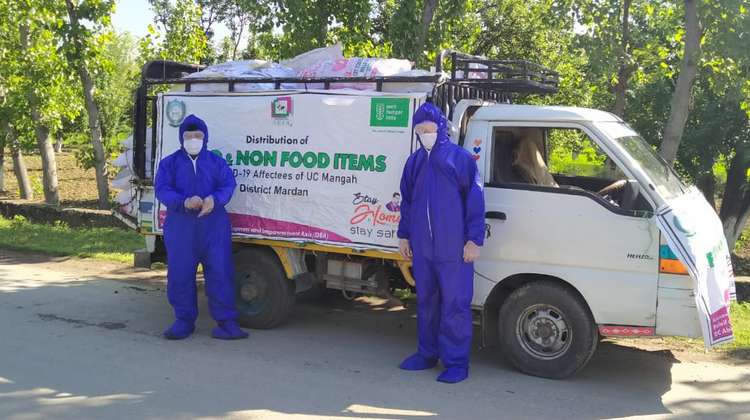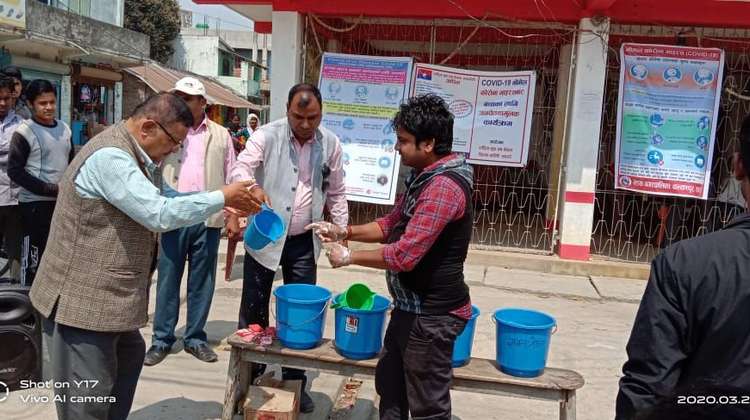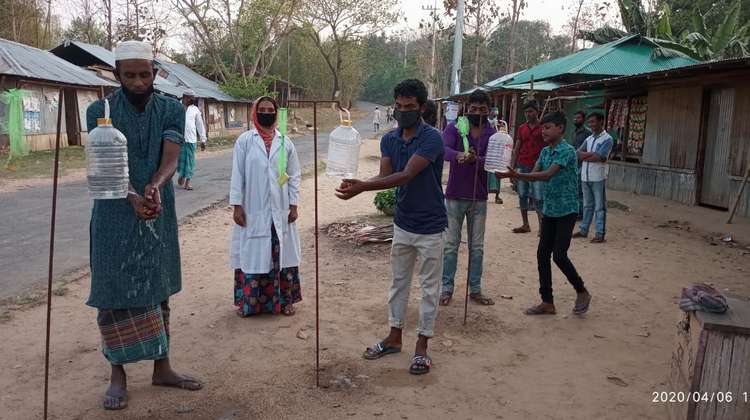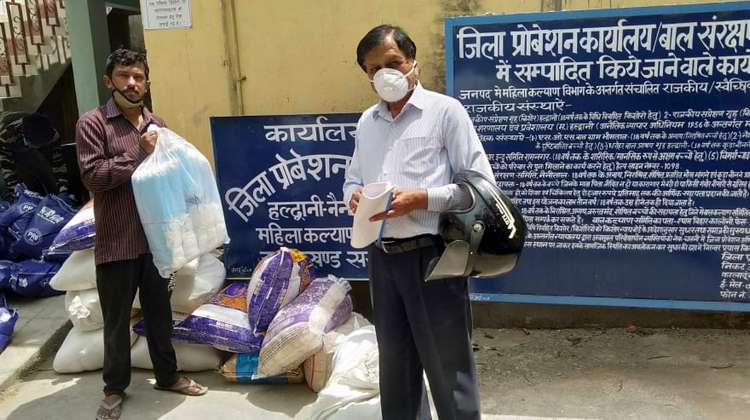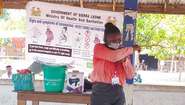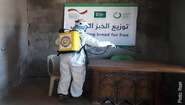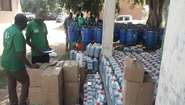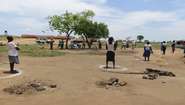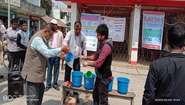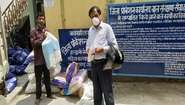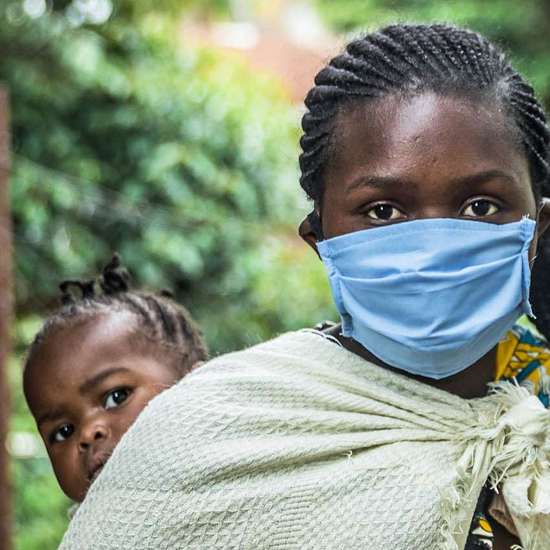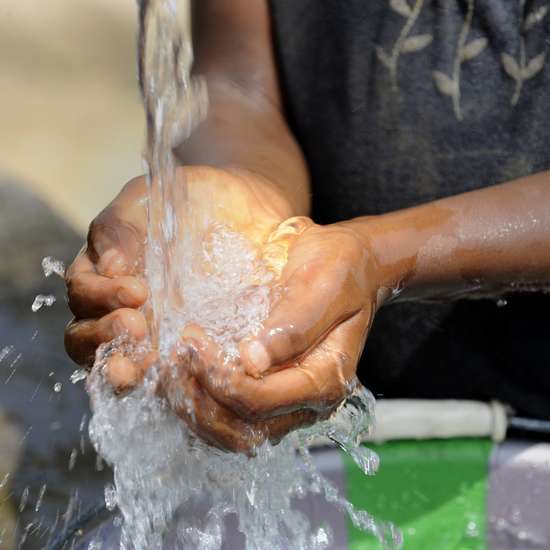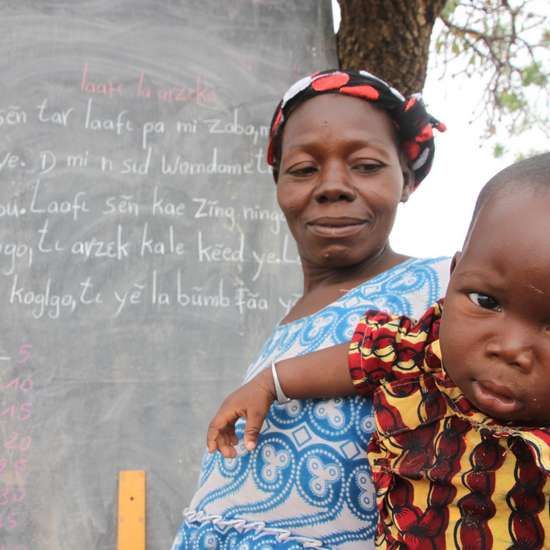The coronavirus pandemic has presented us with many challenges: From social distancing to curfews, we have seen how quickly our everyday lives can change. Even as we increasingly forget such measures, people in Europe and globally are still contracting COVID-19 every day.
How COVID-19 has impacted the lives of people in the countries we work in. A report from October 2020.
In Syria, for example, the pandemic hit people particularly hard. "Jobs have been lost due to the pandemic, supply chains have broken down, and the Syrian pound has lost so much value that many people could not even afford bread," reports Halil Kurt, Welthungerhilfe's (WHH) Program Director in Syria and Turkey. As a result of the civil war, there is also no functional healthcare system – sanitary facilities in the refugee camps of northwestern Syria were particularly inadequate. In Syria, one crisis follows the next: After the earthquakes in February 2023, the people are in urgent need of support.
WHH supports regions suffering from poverty, hunger, wars, displacement, and the effects of climate change. You can support our work with your donation.
Show solidarity with people in need.
From COVID crisis to hunger crisis
The pandemic had fatal economic consequences in many African countries, especially for the poorer population. Many people lost their source of income while food prices rose sharply. This situation could exacerbate existing crises and conflicts. Results of an Alliance2015 study on the impact of the COVID-19 pandemic in the Global South showed that nine out of ten respondents became poorer, and for four out of ten, access to food worsened as a result of the coronavirus crisis.
“The coronavirus pandemic amplified already existing crises,” says Mathias Mogge, Secretary General of Welthungerhilfe. To support the most vulnerable people in the world, for whom the coronavirus crisis has exacerbated their suffering, WHH implemented a wide range of measures tailored to specific local conditions.
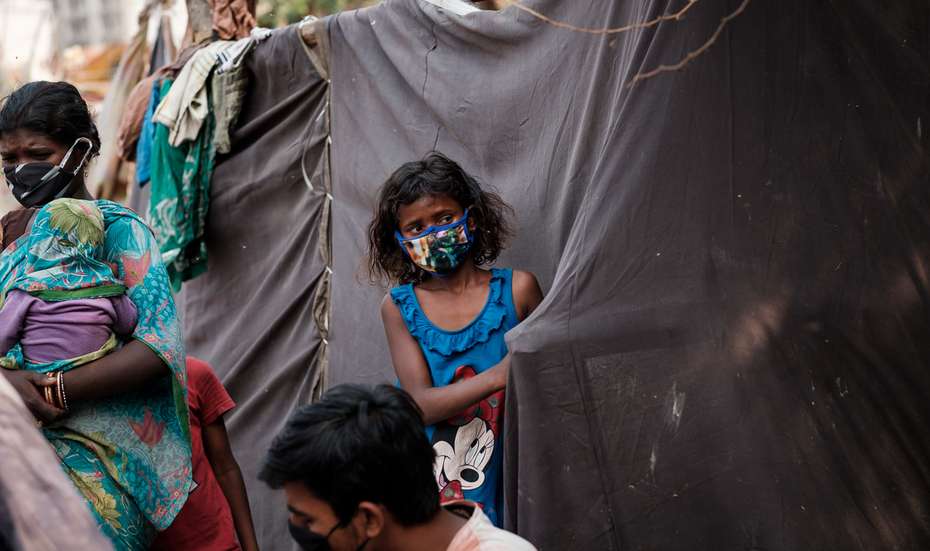
The evolution of pandemics in the Global South
A pandemic is the worldwide spread of an infectious disease with high morbidity and severe disease progression. Whereas historically, pandemics are often spread by land or ship, today, experts consider air routes the fastest way of spreading infectious diseases. Demographic change, antibiotic resistance, and above all, climate change can make it more difficult to combat the diseases.
Melting polar ice caps and thawing permafrost are also exposing old pathogens. The occurrence of recurrent pandemic phases is thus likely in the future. In particular, countries in the Global South, as well as crisis areas where war or armed conflict prevails, face additional challenges from the spread of a pandemic. Fragile states cannot provide the necessary infrastructure to enable virus containment and decelerate the progression of a pandemic.
A lack of medical care leads to severe disease progression and higher mortality rates than in developed countries, especially among children and weakened populations. Residents of countries in the Global South often cannot maintain appropriate hygiene standards because they need access to disinfectants, soap, and running water. As a result, the spread of viruses and the risk of infection are particularly high.
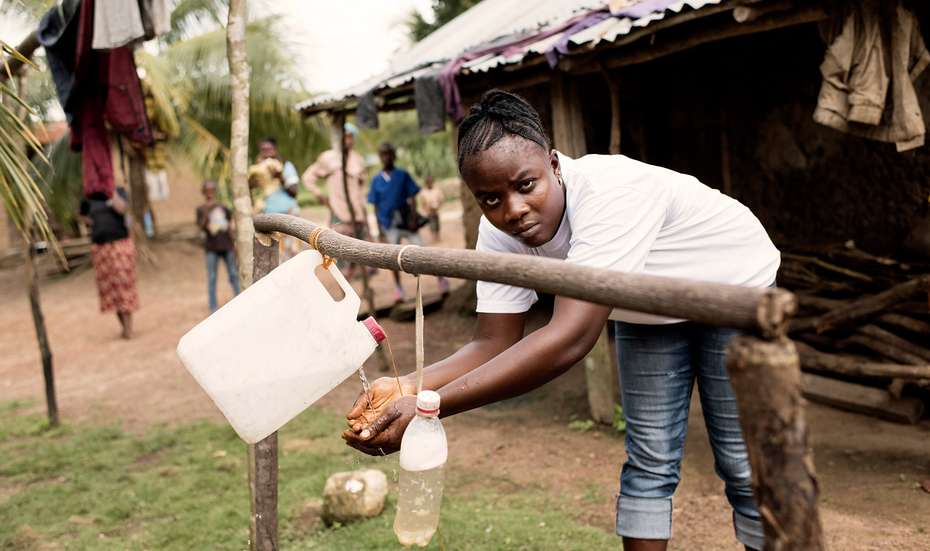
When people lack the resources, funds, and response plans to contain a pandemic, it can develop much more quickly and severely than in an industrialized country. Many people in countries of the Global South work and live in the so-called "informal sector" – the slums. Slums are neither controlled nor registered by the government.
Pension funds, access to social benefits or the health care system are often tied to employment within the formal sector. During a curfew, workers in the informal sector lose all sources of income, which often makes food unaffordable. There is no social security system for them at all.
WHH's measures against hunger related to COVID-19
With a global COVID-19 program, we and our partners have supported five million people in 36 countries. We provided hygiene facilities and food and helped people in the long term resume their economic activities and be better equipped to withstand crises in the future. In this regard, our efforts included investments in agriculture, water and sanitation, and support for local markets and value chains.
Containing the pandemic and its consequences in countries of the Global South
- Development of economic micro-projects to strengthen resilience
- Distribution of hand-washing kits and face masks
- Direct cash assistance to families most in need
- Weekly market analysis to identify trends related to food security and the economic impact of the COVID-19 pandemic at an early stage
- COVID-19 communication materials and awareness campaigns (e.g., via participatory theater projects and radio spots)
- Logistical support to state agencies to assist in contact tracing efforts
- Provision of equipment (e.g., ventilators) to local clinics and hospitals to treat COVID-19 patients
Measures against food shortages & hunger
- Distribution of seeds and seedlings for people to grow their food
- Increasing agricultural production through irrigation systems
- Improvement of domestic food storage (ventilation/insulation) to minimize food losses
- Supporting farmers and beekeepers with tools and marketing
- Food assistance
- Provision of livestock feed & livestock vaccinations
- Cash benefits & vouchers for urgently needed food
- Provision of clean drinking water
With our local partner organizations, we adapted all measures to the specific needs and the situation on the ground. WHH carried out our work on COVID-19 in close coordination with local governments, the UN, and other relevant stakeholders in accordance with national COVID-19 regulations and response plans.
COVID-19 emergency aid: WHH projects
The global coronavirus outbreak placed particular demands on our teams of more than 3,200 employees in 37 countries. They were committed to continuing the fight against hunger and poverty. Despite all the necessary precautions and restrictions, our global aid continued – thanks to your donations.




